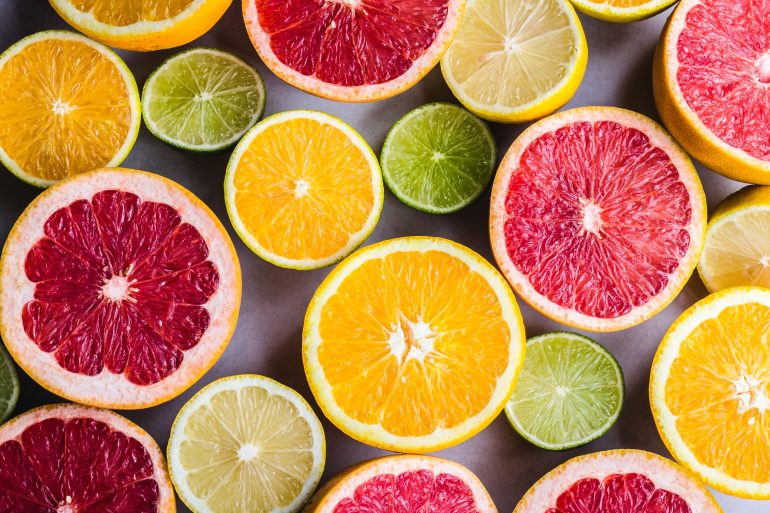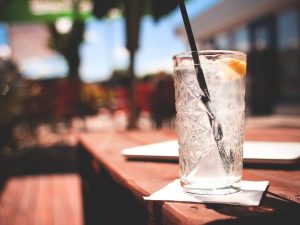
7 Natural Ways to Boost the Immune System for Travel
If you’re traveling soon, you’ll want to make the most of your trip–which means NOT getting sick the night before you leave. If you’re looking for ways to naturally boost the immune system, you’ve come to the right place! Although these products won’t necessarily prevent you from getting sick, each can benefit the body and boost the immune system in a way that reduces the risk of getting sick. Give one or more of these natural products a try to guard against sickness before you travel!
1. Apple Cider Vinegar
Apple cider vinegar is a popular aid in the natural health community. Although it’s not a “cure-all” miracle potion as some claim, it can come with added health benefits such as:
- Killing harmful bacteria
- Adding friendly bacteria
- Providing necessary amino acids
- Cleansing the gut with antioxidants
To receive the maximum potential benefits, dilute 1-2 teaspoons of the organic, unfiltered apple cider vinegar in a glass of water. It’s recommended to use apple cider vinegar with the “mother,” which makes the liquid murky and adds helpful bacteria. Promptly brush your teeth after drinking apple cider vinegar, as the potent acid can damage the enamel on your teeth.
Disclaimer: Apple cider vinegar can produce negative side-effects, such as nausea, dental erosions, and throat burns. Apple cider vinegar may adversely interact with certain medications. Make sure you ingest the recommended amount and consult your doctor if apple cider vinegar is right for you.
2. Echinacea
Echinacea tea is a blessed plant traditionally harvested for medicinal purposes. Though you can find Echinacea in tablets, extracts, and ointments, the most common way to ingest Echinacea is by drinking it in tea form. Echinacea works wonders at:
- Fighting the flu
- Boosting the immune system
- Calming anxiety
- Encouraging healthy cell growth
- Reducing inflammation
You can drink 2-3 cups of Echinacea tea every day to keep your body healthy. If you’re fighting the cold or flu, you can take up to 5 servings to encourage a quicker recovery.
Disclaimer: Echinacea can induce side-effects such as mild stomach pains and nausea. Some may even be allergic to Echinacea. Those with autoimmune diseases are discouraged from consuming Echinacea. Check with your doctor if Echinacea is right for you.
3. Raw Organic Honey
Honey has aided medicine since the beginning of time. Raw organic honey, untouched by pasteurization, in its natural state, maintains the most beneficial nutrients. Some immune-boosting benefits of raw organic honey include:
- Providing antioxidants and phytonutrients
- Soothing sore throats
- Reducing inflammation
- Killing bad bacteria
Feel free to drizzle honey on toast or put a spoonful in your tea to reap the many benefits of raw organic honey. Restrict yourself to a few teaspoons a day, as it’s still a high-calorie sweeter. Consider taking a spoonful at breakfast and again before bed.
Disclaimer: Raw honey can produce adverse side effects in adults including diarrhea, vomiting, constipation, blurred vision, and muscle weakness. Check with your doctor if you experience adverse symptoms from eating raw honey. Children under the age of one should never ingest honey due to the risk of botulism poisoning.
4. Elderberry
Elderberry is another plant used for medicinal uses throughout history. As an excellent source of fiber and vitamin C, elderberry leads to incredible immune boosting factors such as:
- Fighting cold and flu symptoms
- Reducing inflammation
- Providing antioxidant powers
- Improving moods
You can find elderberry in many processed forms such as supplements, syrups, tablets, and jams. Follow the instructions on the supplement label or ask your doctor about a recommended dose for you.
Disclaimer: Raw elderberry bark, berries, leaves, roots, and seeds are poisonous and may lead to stomach problems if consumed. Elderberry is not recommended for children, adolescents, or pregnant women. Check with your doctor if elderberry is right for you.
5. Fresh Garlic Cloves
Garlic stands as one of the top natural immune-boosting agents throughout history. Bursting with vitamins and minerals, garlic works modern miracles by:
- Combatting sickness
- Nourishing the body with manganese, Vitamin B6, and Vitamin C
- Providing kick-butt antioxidants
- Reducing high blood pressure
Press fresh cloves to mix with extra virgin olive oil and a pinch of salt, and you’ll have a yummy dressing that can boost your immune system.
Disclaimer: Some individuals may be allergic to garlic. Those with bleeding disorders or currently taking blood thinners should consult their doctor before increasing their garlic intake.
6. Chicken Broth
There’s a reason mom made you chicken noodle soup whenever you got sick. Store-bought or homemade chicken broth comes with a plethora of nutrients and immune-boosting benefits including:
- Easing cold symptoms
- Reducing inflammation
- Healing irritated intestinal lining
- Cleansing the liver
- Providing necessary amino acids
- Aiding bone and heart health
You can incorporate chicken broth in your diet in many ways. If a recipe calls for water, consider substituting with chicken broth instead. Some people even swap their morning coffee with a warm mug of chicken broth.
Disclaimer: Chicken broth may cause adverse effects including fatigue, disorientation, and seizures in severe cases. Chicken broth may also aggravate conditions associated with some neurological disorders. Consult your doctor if regular consumption of chicken broth is right for you.
7. Lemons
Lemons are incredibly healthy fruit. The juice contains high levels of Vitamin C, and the fruit maintains a hearty dose of fiber. Both can boost the immune system by:
- Prompting iron consumption
- Encouraging kidney health
- Improving digestion
- Providing healthy plant compounds
Although potent to eat whole, lemons are easily added to drinks and foods. If you buy lemon juice, make sure to purchase some with pulp to receive maximum, immune-boosting benefits.
Disclaimer: Average serving sizes of lemon found in food and drinks are likely safe for consumption. Lemon, when used topically, may increase the chance of sunburns in fair-skinned individuals. Pregnant or breastfeeding women should use caution when consuming large amounts of lemon.
Additional resources:










